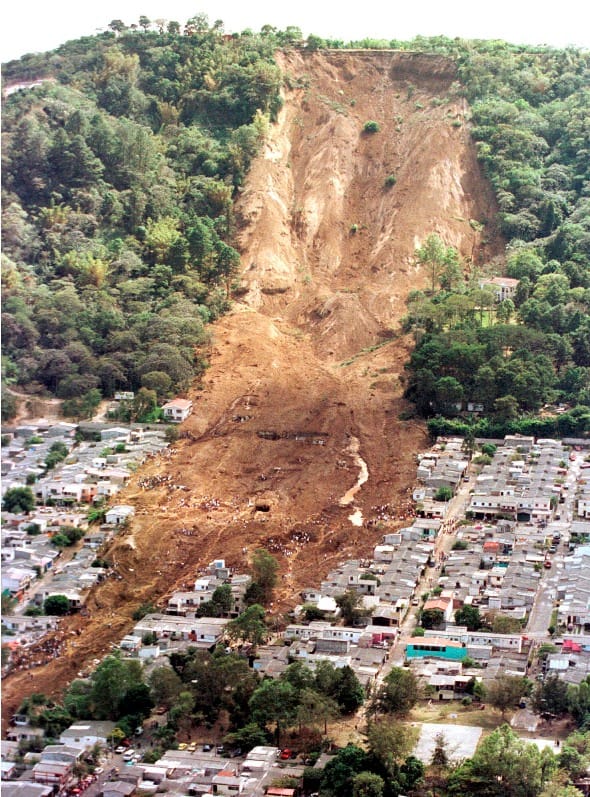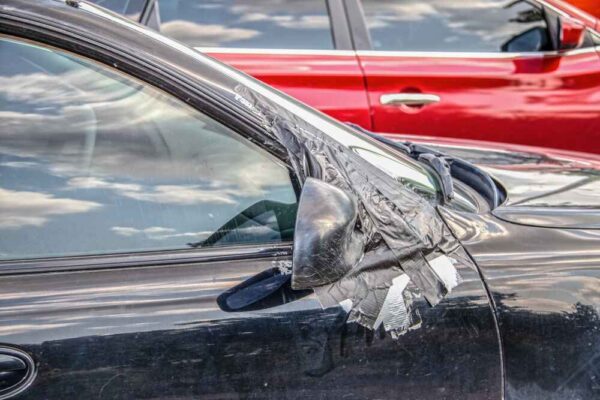
Landslides Are Not Covered By Insurance
The Birken Landslides and Other Disasters are not Covered by Insurance.The Birken Landslide is tragic. All natural disasters are. An evacuation alert has been issued for 38 properties in the Pemberton Area (north of whistler in BC), with numerous individuals requiring airlifts to safety and several homes being completely engulfed by mud. It is a sad, sad time and our thoughts are with those who are affected by the tragedy. It is also an opportunity to talk about one of the more grim aspects of insurance, and explain the thinking behind it. In basic terms, all disasters are excluded from your insurance policy.
That’s right, almost all disasters, be them natural ones like a volcano or earthquake, or manmade ones like a war or terrorist attack, are excluded from your personal policies. That means that in the event of a disaster, you can’t look to your insurance policy for reimbursement. Since most disasters are gigantic and cause a ton of damage, this is not welcome news for policyholders. But it is a sad reality of insurance across the world, and has been the case for hundreds of years. Thankfully, there are still insurance and non-insurance options available to you to reduce your risk, or to reimburse you afterwards. The rest of this blog walks through what is available, and concludes with a brief explanation on why the insurance industry excludes disasters from coverage entirely (in summary: too many people making too many claims).
What Can You do to Protect Yourself if Natural Disasters are Excluded?
Step 1) Is the Disaster You are Contemplating Actual Excluded?
Well for starters, the first and most important thing you can do in this case (or in the case of absolutely any insurance-related question) is to review the wordings of your policy. Generally when you think of natural disasters, you tend to be more concerned about your home policy then your auto, which makes sense since your home is worth hundreds of thousands of dollars and your vehicle is worth just a fraction of that.
However home policies are not as tightly regulated as automobile policies, which means there can be substantial differences in the wordings between one homeowners policy and another. Disasters are one area where there can be large disparities, with some insurance companies excluding all sources while others only limiting a few.
Again, there is no handy list for which companies have these specific quirks and which don’t, so your only real option is to break out the reading glasses and review your policy wordings manually. Or get your friendly neighbourhood broker to do it for you!
Step 2) Is there Coverage Available For the Disaster?
So you looked at your wordings, or if your time is more valuable than that got your broker to review them for your, and found out that the disaster you are worried about is excluded. Darn. But that doesn’t mean it has to be.
As consumers become more knowledgeable about insurance, and more willing to pay to be covered from the risks natural disasters impose, the insurance market has begun to offer insurance policies for these types of claims.
These policies typically take the form of endorsements, which means they are extra coverage stapled on to your existing policy. A good example of this is Aviva Insurance’s recent Overland Flood Endorsement, which covers a risk we previously said was uncoverable in insurance – flooding.
Now of course, just because there is coverage available does not mean you should purchase it. And for many individuals, the cost of coverage like the Overland Flood Endorsement is too high. But it at least makes sense to find out what is available, so you can get a feel for how much it will cost to protect yourself if the worst happens.
Step 3) Personal Mitigation Strategies
No coverage. Nothing available, nothing present, nothing being offered. No options at all. Well, no options when it comes to insurance that is. The truth, of course, is that insurance is just one part of anyone’s risk mitigation strategy. You know what also helps you reduce your risk from a natural disaster? Being prepared.
By taking steps appropriate to the disaster you are concerned about, you can reduce the chance of your property being damaged, and increase the safety of you and your family. Although it is an American website, Ready.gov is a great resource for disaster preparation. Use resources made available online to come up with a plan, and use it in the face of a disaster. It will make a world of difference.
Step 4) Apply to a Relief Fund
If the worst happens and you find your world shattered by a natural disaster, there is still one last line of defence. Relief funds. These are monetary funds, usually (but not always) provided by the government to help individuals affected by natural disasters get back on their feet. Although these funds are nowhere near as comprehensive as insurance, they do provide you with something that can help in the worst-case scenario.
For more information about Canada’s disaster relief fund, I recommend this Globe & Mail article. https://globalnews.ca/news/667601/ottawas-disaster-relief-fund-whats-covered-and-whats-not/
Insurance Company’s Rationale to Exclude Landsides & Natural Disasters from Insurance
Why do insurance company’s exclude disasters from their policies? Put simply, because if they did it wouldn’t take much to drive them out of business. Insurance only works through the spreading of risk – it takes the loss of any one person and spreads it amongst hundreds – and that model is only functional if most people aren’t making a claim (because of how expensive claims tend to be). It breaks down completely in the face of a natural disaster, where not only are the claims massive (tending to be total losses), but they are experienced by thousands. With such a massive event, the insurance broker can’t spread risk, and would go bankrupt in an instant.
A great example is the flooding that took place in Calgary. The cost of that disaster has been pegged at around $6 billion, large than the size of the entire insurance industry in Ontario www.insureconomy.ca/ontario/summary.pdf. It is just too expensive, and on too broad a scale for insurance companies to cover. Sadly, it simply cannot be done.
Now, as we’ve said earlier in this blog, all is not lost. In some circumstances coverage may be available, and in others there are steps you yourself can take to reduce your risk. Of course, no matter what occurs, being prepared can make all the difference. So be prepared, understand your situation, and you will find that disasters become a lot less scary. If you have any questions regarding this matter give us a call at 1-800-361-0941.
You Might Want to Read
June 15, 2025
Sideswipe Collision: Who Is at Fault in Sideswipe Accidents?
June 15, 2025
Least Depreciating Cars in Canada
June 5, 2025
Welcome to the Team Keyes Insurance


